Military and political elites of Great Britain about the USSR army on the eve of the war
Great Britain, before acting as an ally of the USSR in the Great Patriotic War, soberly assessed the state of the Soviet armed forces. The British military leadership, in a sense, publicly described the professional and combat qualities of the Red Army on the eve of the war as quite high, but not without criticism.
In order to remind once again what this British review of our army was in the late 30s, let us consider three specific historical document.
One of them is the result of monitoring of Soviet troops by representatives of the British military elite (a report sent in September 1936 to the British General Staff, from the British representative General Wavell, who visited the autumn maneuvers of the Red Army, where he gave an assessment of the current state of the Soviet troops).
The position of the political elite (as retold) is reflected in two letters (from 1934 and 1937) from the former tsarist diplomat E.V. Sablin, who lives in London, where he almost literally expounds the remarks of the British nobility about the state of the Soviet troops in those years, published in the leading British newspapers (mouthpieces of the British political and military establishment) of that time.
1936
In 1936, autumn bilateral operational-tactical maneuvers of the troops of the Belarusian Military District were carried out in a vast area east of Minsk.
Foreign military delegations were invited there as guests. The foreign observers included, among others, from the British armed forces, the commander of the 2nd Aldershot Division, General A. Wavell, the representative of the General Staff, Colonel Martell (known at that time tank theorist), as well as Colonel Wigglesworth.
In its report September 9/10, 1936 (Report on visit to manoevres in White Russian military district. P. 10-12. Mjr.-Gen. AP Wavell to Chief of the Imperial General Staff, Moscow, Sept. 9, 1936 (copy) // PRO. FO / 371/20352 / N5048) about this event, General Archibald Wavell highly appreciated the technical condition and professional level of the personnel of the Soviet Air Force. He also drew attention to the high morale of the Red Army and intra-army relations.
However, there were also critical remarks in the same report. The British general spoke unflatteringly about the combat and professional training of the Soviet troops. He especially did not like the methods of combat employment of troops and tactical training.
The Briton called the weak point of the Soviets the lack of a sufficient number of trained commanders and technical specialists.
In addition, the general considered that the shortcomings of the Soviet troops noted by him were unavoidable, since, in his opinion, they were inherent in the Soviet / Russian national character. On the whole, in the position of the British military elite of those years, there was an undisguised conviction about the "inferiority" of the Soviet person.
This is what exactly this British general wrote in his report to the British military leadership about our Red Army:
Their armored forces are now far ahead of any other army in size, design, and use; and they probably have the capacity to sustain their production in times of war.
Their air force is impressive numerically, but the RAF does not think their pilots or aircraft are more than decent, certainly below our standard.
As for the other branches of the armed forces — cavalry, artillery and infantry — the personnel are physically excellent, as they have always been before; equipment and training have advanced since pre-war times.
The spirit of the whole army is very high; relations between officers and enlisted men appear to be good, discipline is clearly well maintained, and, with the exception of the common use of comrade as a form of address regardless of rank, appears to be little, if any, different from that of "class" armies.
In reality, the officers of the Red Army are showing clear signs of becoming a privileged caste, and in fact, in many ways, are already it.
On the other hand, the tactical methods used seem to be clumsy and rather primitive and, without any doubt, will lead to heavy losses during the war; until the road and rail system is improved, the problem of transport and supply will be very difficult; the reserve of trained officers and technical personnel is probably completely inadequate for military needs.
Time and hard work can reduce these obstacles, but obstacles rooted in national character take longer to resolve.
From a military point of view, the main one has always been the lack of initiative and evasion of responsibility on the part of commanders, especially junior ones, and the preference given to ideal paper diagrams over practical implementation in real conditions - on the part of staff officers. "
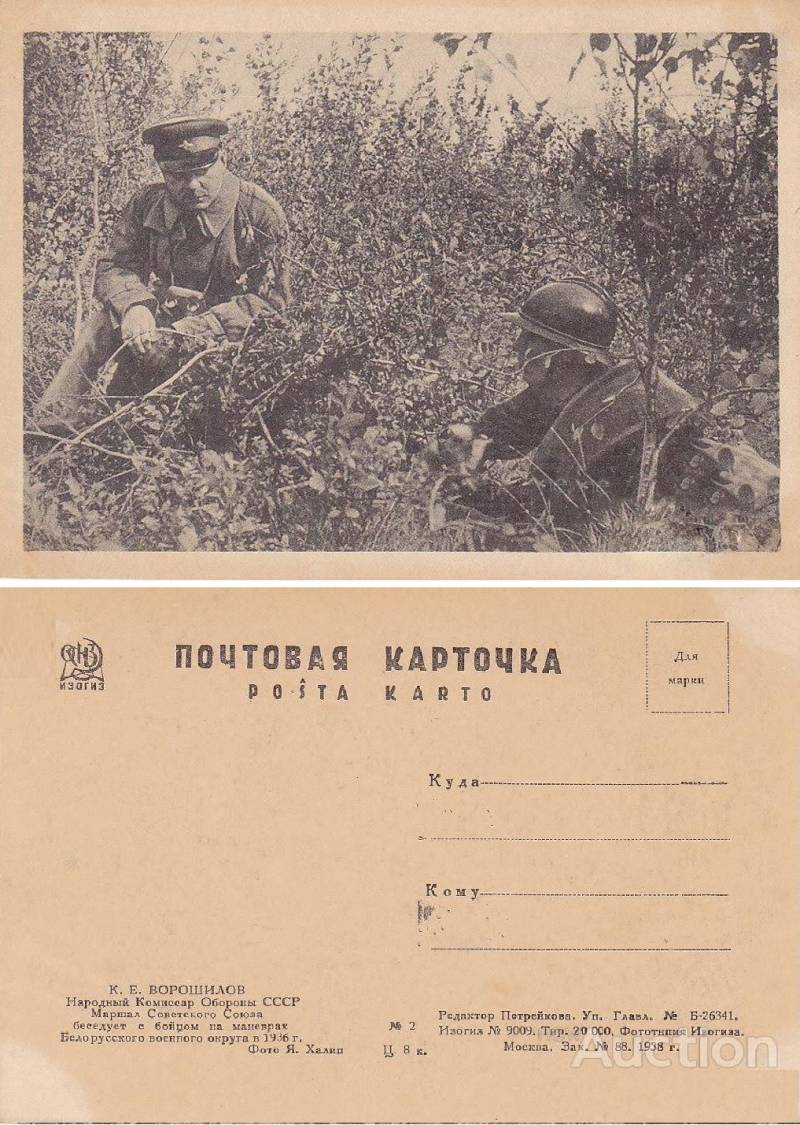
Postcard. “People's Commissar of Defense of the USSR Marshal of the Soviet Union K.E. Voroshilov talks to a soldier at the maneuvers of the Belarusian Military District in 1936 " Moscow, 1938, photo by J. Khalip. Source: andcvet.narod.ru, auction.ru
1934
As for the position of the British political elite, it was recorded in two historical documents. These are two letters (1934 and 1937) of an ex-diplomat living in London, in which he practically verbatim retells the editorials of English newspapers. And these publications relayed the position of British political circles.
In fact, the British political elite then continued to view the Red Army (including publicly on the pages of the editorials of the leading London periodicals) as a weapon intended solely to suppress the dissatisfaction of the Soviet population within the country.
The cream of British society was skeptical about the potential of the Red Army in operations in external theaters of military operations.
Their skepticism grew (just like that of the British generals) from the argument about the notorious Russian national character and certain features of the Soviet people.
Both historical documents about this were published in compilation “What were we witnesses ... Correspondence of former tsarist diplomats of 1934-1940. In 2 volumes "(1998).
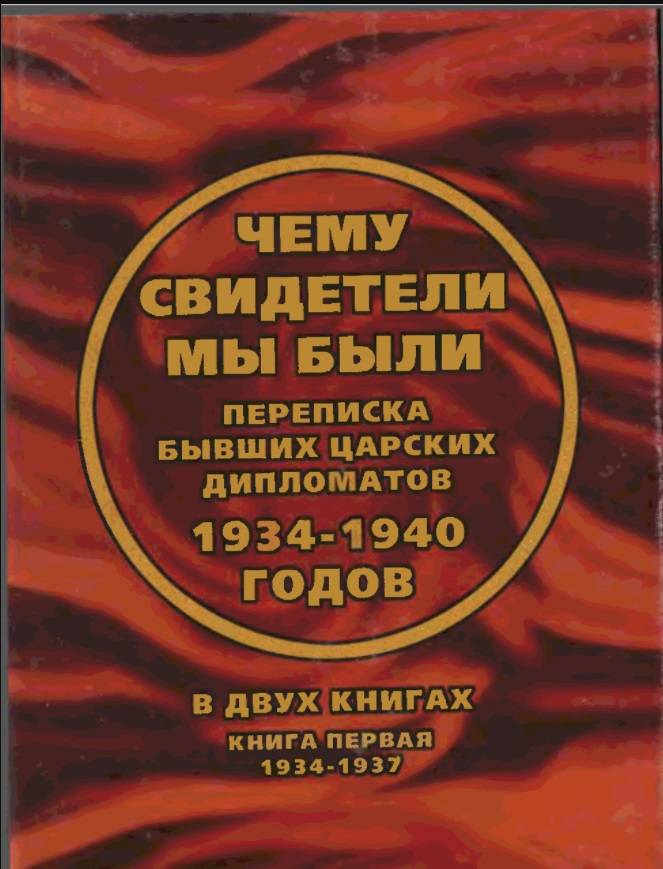
The first evidence is a letter from the ex-diplomat, former tsar's chargé d'affaires in London (1919-1924) Yevgeny Vasilyevich Sablin, sent from London on March 20, 1934. This message was addressed to the lawyer and politician Vasily Alekseevich Maklakov. The document was classified as "top secret". It is indicated that the handwritten original was photographed by agents of the GUGB department.
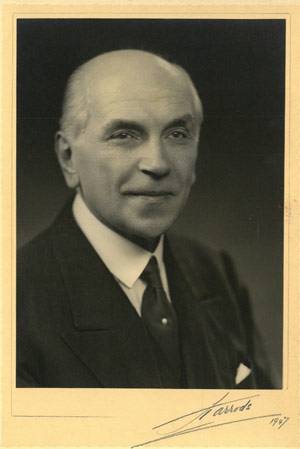
E.V. Sablin. Source: angliya.com
E.V. Sablin, in particular, says in his letter that in the March 1934 issue of one of the oldest English monthly magazines, The Nineteenth Century, the British correspondent who returned from the Soviet Union to Great Britain, Malcolm Muggeridge, published a very important article “Germany, Russia (USSR), Japan ". This English correspondent also expounds in this article his views on the Red Army.
Actually, this very article is retelling almost word for word by the ex-diplomat.
Here is what Muggeridge wrote about the Red Army in that article (the original article could not be found, so the text is given in Sablin's literal presentation):
However, it does not have combat experience, its commanding staff is rather dubious, it is difficult to imagine what this army could turn into in case of a collision with a first-class military power. "
She alone can contain the starving and protesting population.
If significant parts of the Red Army had to be sent to the external front, then millions of peasants, driven to despair, would remain in the rear.
They hate Soviet power ... and are ready to welcome any foreigner, any foreign conqueror, if only he promised to get rid of the current situation, which has become truly unbearable. "
However, it is hardly possible to draw a conclusion from this that such "practice" could prepare real fighters against a strong external enemy. On the contrary, Muggeridge thinks. "
In those years, the British elite paid special attention to foreign intervention in Ukraine. It was noted that the European crusade against the USSR would rely on Ukraine, where Europeans were perceived at that time (as well as today) as liberators.
The Ukrainians themselves cannot do anything, but one might think that it would be easier for the German forces to occupy Ukraine now than in 1918. The peasant masses would have welcomed them.
The leaders of the Ukrainian opposition know this, and it seems to represent a considerable temptation for them ... Germans could hardly have encountered a serious obstacle on either side if they now acted as the liberators of the Ukrainian people from the yoke of the communists ...
Regarding the Ukrainian separatists outside Russia (USSR), we can say that they would probably find German-Polish interference in the affairs of Ukraine in their own interests ... foreign interference. All hopes for the collapse of the Soviet state from within are weakening over time, although Muggeridge himself believes that such an opportunity is closer to being realized now than it was at other times. "
By the way, rumors and rumors about a united Europe's campaign against the USSR have been circulating for a long time. This was specifically stated in a retold article in the English monthly Nineteenth Century:
1937
In another letter from London (March 18, 1937) from E.V. Sablin (addressed to the same V.A.Maklakov) there are no less interesting quotes about our army from the British propaganda press. This published letter was also classified "top secret".
The diplomat begins this letter with the story that three days ago the Times newspaper published an editorial about the twentieth anniversary of the Russian February Revolution of 1917. (Historians point out that the Times newspaper unofficially reflected the position and views of the most authoritative part of the British political and military elite).
The jubilee article, among other things, assessed both the results of military construction in the USSR and the state of the army of the Soviet Union as a whole, 20 years after the 1917 revolution.
The political elite of Great Britain (in contrast to its military elite) had very positive impressions of the Red Army, especially about our air force. Although disadvantages were noted too.
The number of civilian armies reaches 1 people, and the number of spare armies has already exceeded six million.
A huge mechanized apparatus has been created with a large army of reserve pilots, which will always be possible to replenish from civilians previously trained in this matter.
Russians in general, states The Times, have a special talent for aeronautics.
Finally, the tremendous development of heavy industry, which at any moment can be used for military purposes, all this significantly weakens for Russia (USSR) the danger of an external war, under the threat of which it lived for so many years.
True, observers argue that the quality of Soviet weapons does not correspond to the quantity and that the Soviet railways are still in an unsatisfactory condition, but for a defensive war this may not be so important. "
Thus, in general, the opinion of both the British political establishment and the British military elite about the Red Army was not entirely flattering.
In addition, in those years, among the upper British society, sentiments in favor of friendship with Nazi Germany were very widespread.
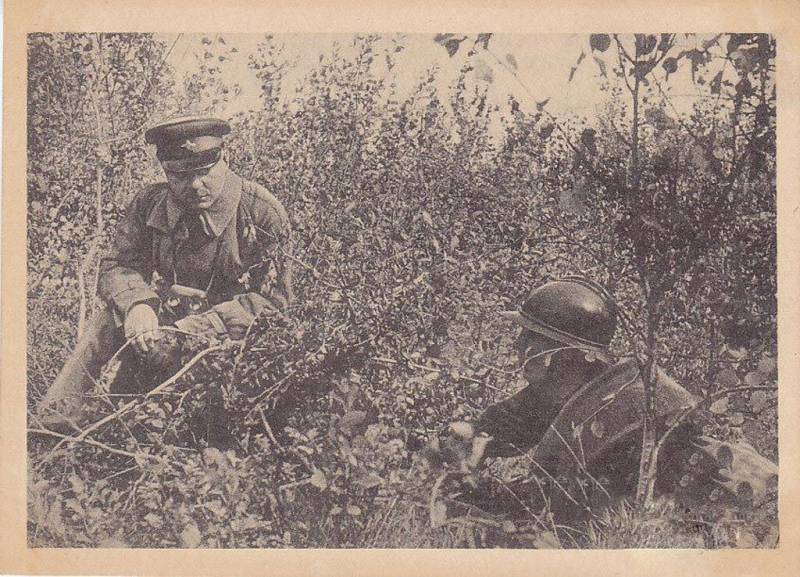
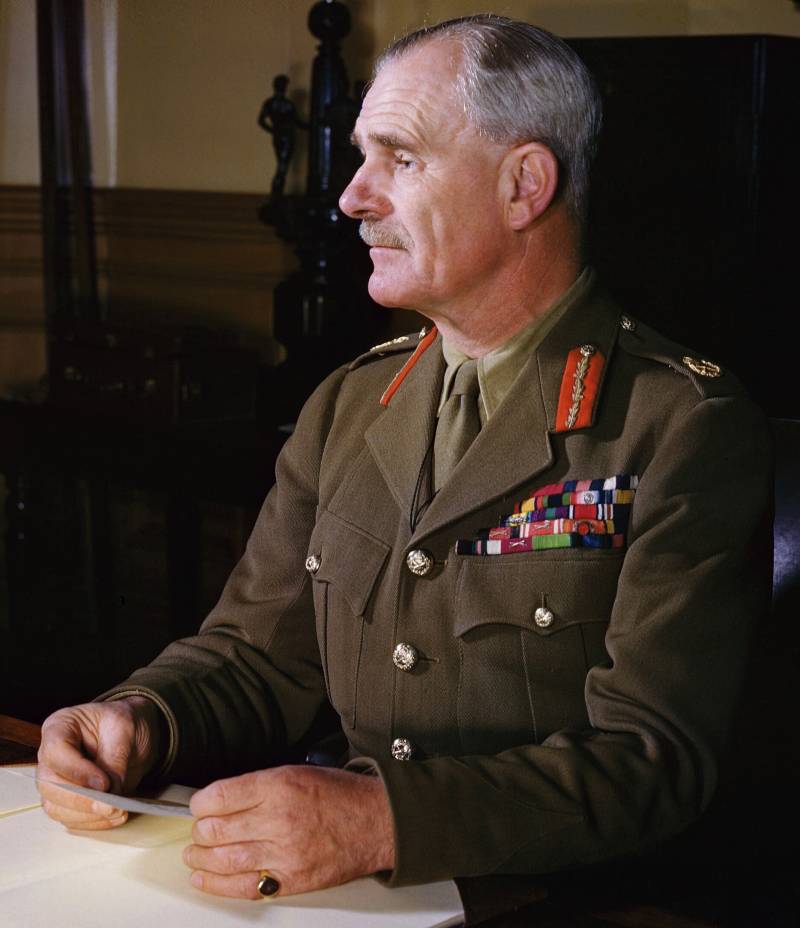
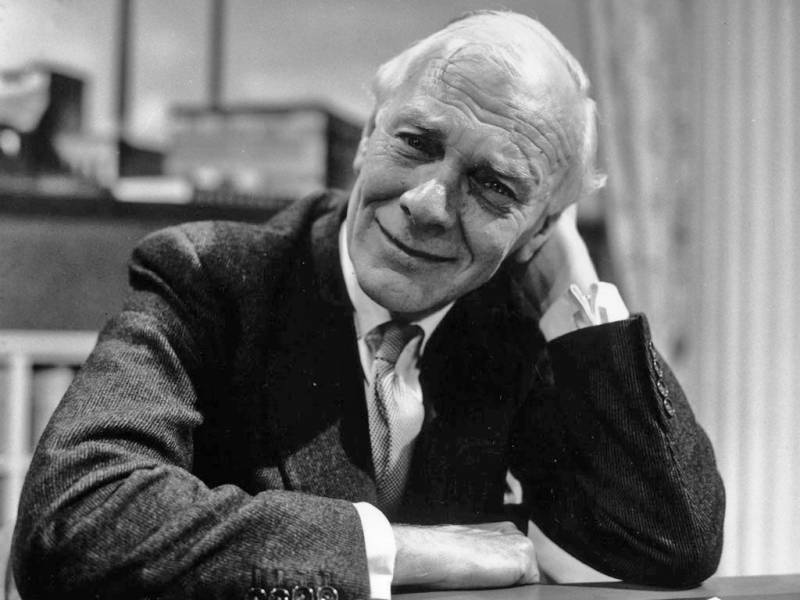
Information